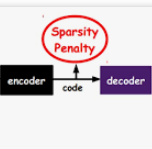Species living in the extreme cold environment fight against the harsh conditions using antifreeze proteins (AFPs), that manipulates the freezing mechanism of water in more than one way. This amazing nature of AFP turns out to be extremely useful in several industrial and medical applications. The lack of similarity in their structure and sequence makes their prediction an arduous task and identifying them experimentally in the wet-lab is time-consuming and expensive. In this research, we propose a computational framework for the prediction of AFPs which is essentially based on a sample-specific classification method using the sparse reconstruction. A linear model and an over-complete dictionary matrix of known AFPs are used to predict a sparse class-label vector that provides a sample-association score. Delta-rule is applied for the reconstruction of two pseudo-samples using lower and upper parts of the sample-association vector and based on the minimum recovery score, class labels are assigned. We compare our approach with contemporary methods on a standard dataset and the proposed method is found to outperform in terms of Balanced accuracy and Youden's index. The MATLAB implementation of the proposed method is available at the author's GitHub page (\{https://github.com/Shujaat123/AFP-SRC}{https://github.com/Shujaat123/AFP-SRC}).
翻译:生活在极端寒冷环境中的物种利用抗冻蛋白(AFPs)来对付严酷的条件,这种条件以不止一种方式操纵了水的冷冻机制。AFP的这种惊人性质在一些工业和医疗应用中被证明极为有用。由于其结构和序列缺乏相似性,因此其预测是一项艰巨的任务,在湿实验室实验性地发现这些物种是耗时和昂贵的。在这项研究中,我们提出了一个预测AFP的计算框架,这一框架主要基于利用稀疏重建的抽样分类方法。一个线性模型和一个已知AFP的过份字典矩阵被用来预测一个稀疏的等级标签矢量,提供抽样联系评分。Delta规则用于重建两个假标本,使用样品联系矢量的下层和上层,并根据最低回收分,指定了等级标签。我们将我们采用的方法与标准数据集的当代方法进行比较,并发现拟议方法在平衡准确性和Youden索引方面优于。MATLABABSQ_S/GiagrubSFS/PS。拟议方法的作者可使用Gial/Gial-HABS/SBS/FPS/PS/PS/PS/PS/GIGial_PS/S/PS/S/S/GIGAH/S/PS/PS/PS/PS/GAT/PS/GAT/S/S/S/PS/PS/PS/PS/GAT/GAT/S/S/S/GAB/S/C_)。



